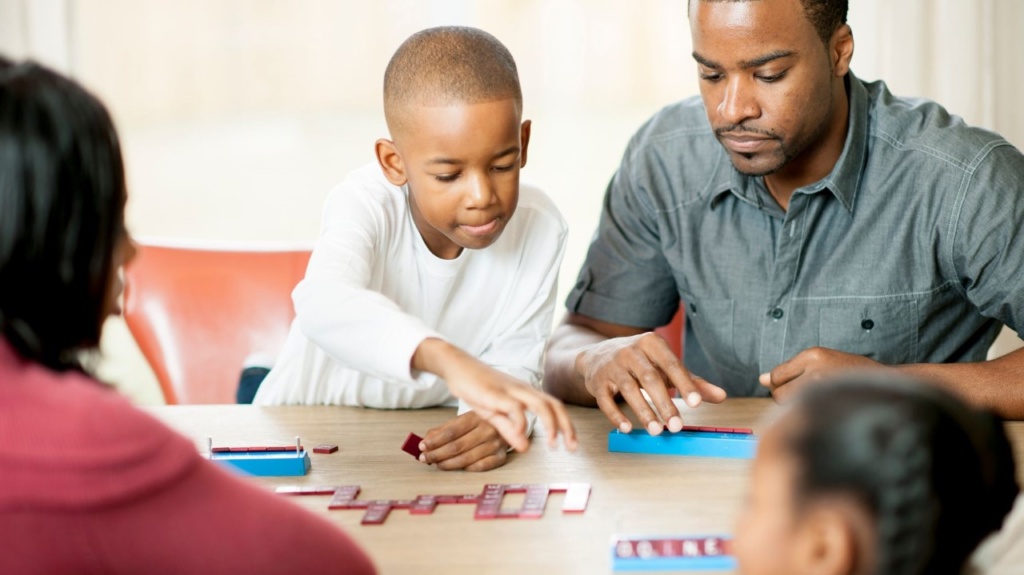
My job allows me the opportunity to support and help develop schools’ strategies and aims. Increasingly, I have been asked three common questions which, taken together, form the inspiration for the Games Workshop that I have since designed and introduced to schools, delivering them to parents/carers and teachers alike:
- How can we expand the learning for children beyond the classroom?
- How can we help parents/carers help with their children’s learning more?
- And how can we, as a school, engage with ‘hard-to-reach’ parents?
All three of these questions share the same strategic aim, which is to improve children’s learning. My response was to tackle all three, head-on. The outcome was to design and create a ‘Games Workshop’.
So, why games? Firstly, I began to think about activities which would support the learning that the majority of these children needed, but being careful not to present it as MORE homework for the child/parents to tackle and not generating MORE marking for teachers. In the majority of cases, the skills and knowledge the child needs to build on/practice, are basic skills; either in numeracy or in English. I therefore began to focus on activities that we could share with parents, which would easily support the development and practice of these basic skills.
Secondly, I have drawn a lot from my life experiences. I have always used games to support my young son’s learning and to engage him in activities that he was previously reluctant to . Reflecting on this, I wondered whether this could be a vehicle to help other parents support their children with learning. After all, children love playing games. But not all games are equal. Reflecting upon my own experience as a child, I recall certain games that had a clear literacy bent were not fun, whereas strategy/numeracy games were extremely enjoyable. Bearing that in mind, I began to unpick what aspects of learning that games supported and made a list. Here are some examples:
- ‘Guess Who’ is brilliant for helping to model the formulation of appropriate questions.
- In ‘Connect 4’, players need to be strategic in where they place their pieces.
- With ‘Snakes & Ladders’, mathematical knowledge can be developed.
- ‘Monopoly’ is a great game to support strategic thinking, counting, reading and develop negotiation and communication skills.
- ‘Cludo’ develops strategic thought, inference and deduction, maths (dice) and most importantly, I think, questioning skills.
- ‘Don’t Scramble the Egg’ supports memory, recall, categorisation and building vocabulary.
All these games, and more, require different skills – personal, technical and creative - that children need for learning in all aspects of their lives. Having chosen the use of games as a learning strategy, I then had to decide on how best to use them to address the three core questions, mentioned above. Two factors underpinned my approach. Firstly, using the principle of ‘good learning’ of “study, study, practice, practice, practice.” (Cole Andrew, AfA), I viewed games as the source of the practice opportunities. Secondly, as a parent who often struggles to find quality learning time with my child, I saw games as a method to allow a child and parent/carer to get some regular learning time together, but I also understood that the use of games needs to fits both their lifestyles.
To begin with, I created a bank of ideas to share with parents. Typically, these ideas were put into three different categories: